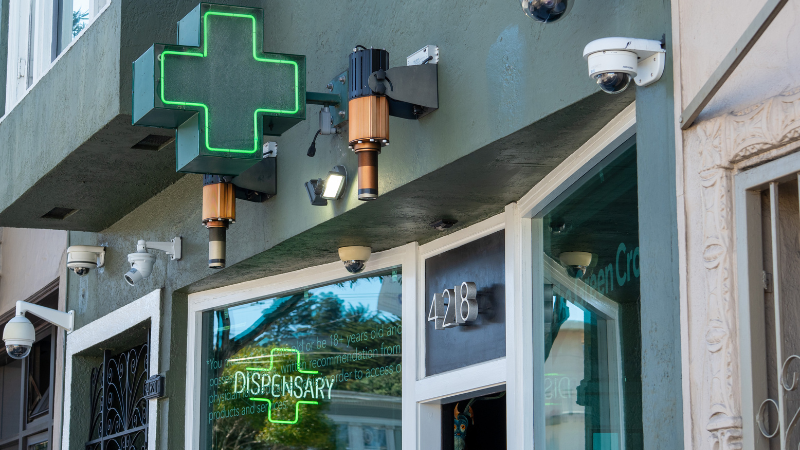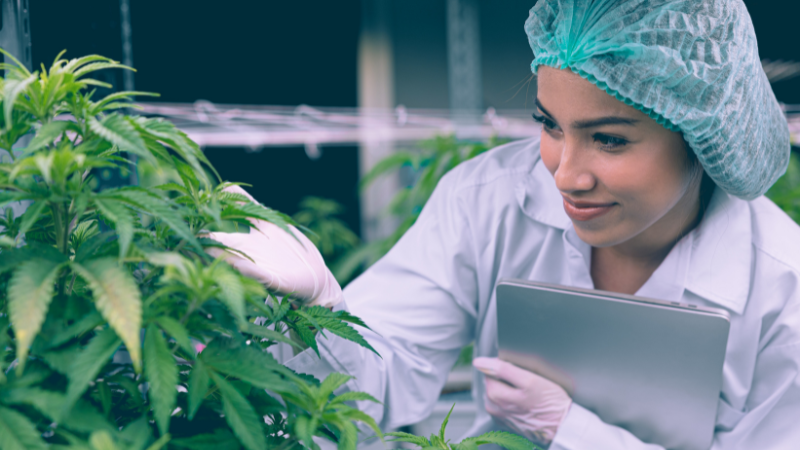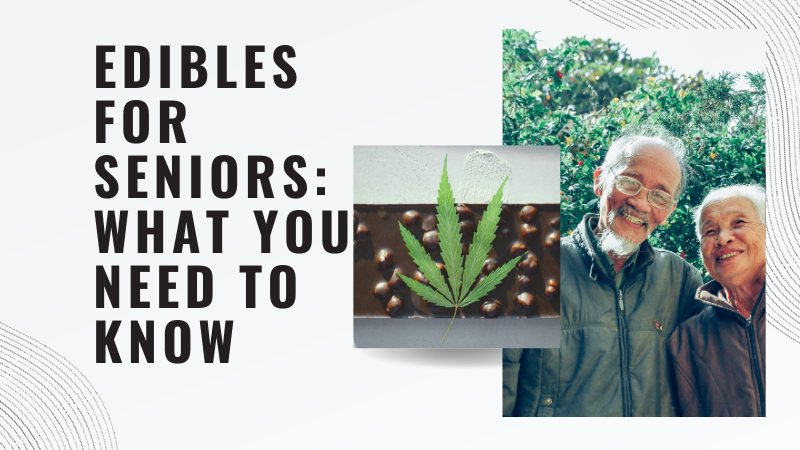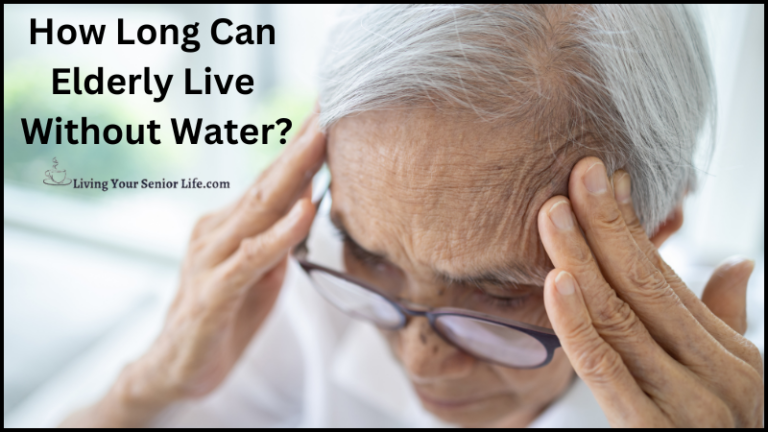As the use of cannabis becomes more widely accepted for medicinal purposes, many seniors are turning to edibles as a discreet and convenient way to experience the potential benefits of this plant. In this blog post, we will delve into the world of edibles for seniors, discussing their potential advantages, potential side effects, and tips for safe and responsible consumption. Whether you’re a senior looking to explore the therapeutic potential of edibles or a caregiver seeking insights into this increasingly popular option, this post aims to provide valuable information to help navigate the use of edibles in a senior context. Join us as we explore the intersection of cannabis and senior wellness.
This post is for informational purposes only and should not be used in place of the advice of a medical professional.
Key Takeaways:
- Seniors may find cannabis edibles beneficial for managing various health conditions with proper guidance and usage.
- Consulting a healthcare provider is crucial when integrating cannabis edibles with other medications to avoid adverse effects.
- Starting with low-dose edibles can allow older adults to safely incorporate medical cannabis into their health regimen.
The Difference Between THC and CBD Edibles
Understanding the difference between THC (tetrahydrocannabinol) and CBD (cannabidiol) edibles is crucial, especially for those exploring the world of cannabis-infused products.
THC and CBD are both compounds found in the cannabis plant, but they interact differently with the body’s endocannabinoid system, leading to distinct effects.
CBD Edibles:
- CBD is non-psychoactive and does not cause a “high.”
- CBD edibles offer potential therapeutic effects, including anti-anxiety, anti-inflammatory, and analgesic properties.
- These edibles are popular among those seeking the potential health benefits of cannabis without the intoxicating effects.
THC Edibles:
- THC is psychoactive and produces the “high” associated with cannabis.
- THC edibles may induce euphoria, relaxation, altered perception of time, and increased appetite.
- These products are often sought for recreational purposes, but they can also have therapeutic benefits, such as pain relief and stress reduction.
When choosing between THC and CBD edibles, individuals should consider their desired effects, personal preferences, and any potential medical conditions. It’s essential to start with low doses and gradually adjust to find the right balance for individual needs. Consulting with healthcare professionals can provide personalized guidance based on specific health conditions and goals.
Indica versus Sativa Strains in THC
Cannabis strains are categorized into Indica, Sativa, and hybrid. When selecting a strain, it’s essential to consider personal preferences, desired effects, and any potential therapeutic benefits. Keep in mind that individual responses can vary, and experimenting with different strains may help find the ideal balance for your unique preferences and needs. Consulting with knowledgeable budtenders or healthcare professionals can also provide valuable guidance.
Indica Strains:
- Physical Effects: Indica strains are often linked to a more relaxing and sedative experience.
- Body High: Users commonly report a soothing body high, making Indicas suitable for relaxation and bedtime use.
- Cannabinoid and Terpene Profile: Indica strains tend to have higher levels of CBD (cannabidiol) and myrcene terpenes, contributing to their calming effects.
- Appearance: Indica plants are typically shorter and bushier with broader leaves.
Sativa Strains:
- Cerebral Effects: Sativa strains are known for producing uplifting and energizing effects.
- Mind High: Users often experience a more cerebral, creative, and euphoric high, making Sativas popular for daytime use.
- Cannabinoid and Terpene Profile: Sativa strains may have higher levels of THC (tetrahydrocannabinol) and terpenes like limonene, contributing to their stimulating properties.
- Appearance: Sativa plants are generally taller with narrower leaves.
Hybrid:
- Many strains available today are hybrids, combining characteristics of both Indica and Sativa.
- The goal is to achieve a balanced experience that incorporates the best of both worlds, addressing a broader range of needs.
Video: Overview of Edibles for Seniors
Potential Health Benefits of Edibles for Seniors
Cannabis, particularly in edible form, offers potential health benefits for seniors, including pain relief and mood enhancement. It’s important to address the specific needs of older adults when discussing medical cannabis use.
Cannabis for Pain Management
Chronic pain is prevalent among seniors, often related to conditions like arthritis. Cannabis edibles can be a beneficial alternative for pain management, with studies indicating that medical marijuana may reduce reliance on prescription medications. A low dose of THC in edibles may provide adequate pain relief without significant unwanted side effects.
Cannabis Edibles and Mood Improvement
Depression and mood fluctuations are common as people age. Cannabis products may improve mood by influencing neurotransmitter systems. CBD products are becoming popular for their mood-stabilizing effects without the psychoactive effects of THC.
Medical Cannabis and Sleep Cycles
Seniors often struggle with insomnia. Medical cannabis has shown promise in regulating sleep cycles and improving sleep quality. Including low-dose edibles in their daily routine could be the best way for some older individuals to harness these benefits.
Cannabis Use in Controlling Inflammation
Inflammation contributes to many health conditions seniors face. Medical cannabis contains compounds like CBD that may help control inflammation. This is particularly relevant for those with arthritis or cardiovascular problems where inflammation plays a key role. Always consult with a healthcare provider to avoid drug interactions, especially if using blood thinners.
Safety and Risks
Please be aware that THC in any form is a drug and it is illegal to drive while taking edibles. Also, anyone operating machinery should not ingest THC.
When exploring cannabis edibles as a treatment for health conditions such as chronic pain, it’s crucial for older adults to understand the risks and safety considerations. Edibles can offer pain relief and potential benefits but come with unique challenges.
Understanding Dosage and Control
For older adults trying medical cannabis for the first time, dosage is paramount. Starting with low-dose edibles, typically 1-5 mg of THC, helps maintain control over the effects. Older patients should always consult their health care provider to integrate edibles into their daily routine safely.
Side Effects of Cannabis Consumption
While cannabis products may alleviate pain, they can also lead to unwanted side effects like dizziness, dry mouth, and altered heart rate. These effects can be more pronounced in senior citizens due to age-related changes. Patients looking for pain management should opt for edibles in a variety of flavors that align with their different needs.
Drug Interactions and Contraindications
In older people, the risk of drug interactions increases, especially if they’re taking prescription medications or blood thinners. THC and CBD components can affect other drugs’ effectiveness, potentially causing adverse effects on blood pressure or even risking a heart attack. Medical marijuana users must disclose all medications to their providers to avoid contraindications.
Mitigating Risks for Older Adults
Older adults can mitigate health risks by purchasing edibles from high-quality, trusted sources. These products, along with cannabis extracts, should come with strict regulations regarding THC content. Older persons are advised to select products with natural ingredients and discuss any history of heart rate issues or medical conditions with their provider.
Remember to start with lower doses, especially if you are trying edibles for the first time, to gauge your body’s response and avoid potential side effects like changes in blood pressure or heart rate. Always seek advice from a health care provider or a specialist in clinical research about drug interactions and to ensure safe integration of cannabis into your health regimen.
Driving and Edibles
Please be aware that THC in any form is a drug and it is illegal to drive while taking edibles. Also, anyone operating machinery should not ingest THC.
According to AAA THC impacts driving ability in the following ways:
- Research shows that marijuana can impair drivers in a variety of ways. It can affect psychomotor functions such as attention, reaction time, and coordination.
- Further, numerous laboratory-based studies have demonstrated that marijuana use impairs many aspects of cognitive and physical function that are necessary for safe driving.
- Marijuana can decrease car handling, can impair performance and attention while increasing reaction times, following distance and lane deviation.
- Mixing alcohol and marijuana may produce effects greater than either drug on its own.
Selecting the Right Edibles for Seniors
As senior citizens explore the potential benefits of medical cannabis, choosing the appropriate edibles for health conditions like chronic pain requires understanding product options, dosages, and safe access.
Low-Dose and Microdose Edibles
For older adults trying edibles for the first time, low-dose edibles containing a small mg of THC are recommended to minimize potential side effects and drug interactions. Microdosing, the practice of taking lower doses more frequently, can be beneficial for managing conditions and integrating cannabis into one’s daily routine without the overwhelming effects commonly associated with higher doses. Begin with the lowest dose possible, often between 1-2.5 mg of THC, and monitor how your body responds.
- Recommended Start Dose: 1-2.5mg THC
- Potential Side Effects: Minimized with microdosing
- Frequency: Adjusted based on individual tolerance and need
The Role of Dispensaries in Safe Access

Dispensaries play a critical role in providing safe access to quality-controlled cannabis products. Older people considering medical marijuana for medicinal purposes should seek advice from knowledgeable dispensary staff who can help navigate products and advise on avoiding unwanted side effects, particularly if the individual is on prescription medications or has heart rate concerns. Always inform healthcare providers about cannabis use to ensure safe integration with existing healthcare protocols.
- Staff Guidance: For selecting appropriate cannabis products
- Quality Control: Ensuring high-quality, natural ingredients
- Health Care Integration: Communicate with providers regarding medical use
Legality and Regulations in Different States
The legalization of cannabis for medical use and adult use varies across the United States. Some states have legalized it for both recreational and medicinal use, while others have not. As of the writing of this article, in the United States, cannabis is legal in 38 of 50 states for medical use and 24 states for recreational use.
It is illegal to drive while taking edibles.
Clinical Evidence and Research

As seniors continue to explore alternative options for pain management and other health conditions, it’s essential to consider the clinical evidence and research surrounding cannabis use in older demographics.
Studies on Cannabis and Senior Health
Research indicates that older adults are increasingly using cannabis, particularly in low-dose edibles, for conditions such as chronic pain. A new study references that older patients may find pain relief without the unwanted side effects commonly associated with prescription medications.
Cannabis edibles often provide a controlled dosage, which is crucial for seniors, particularly those trying cannabis for the first time. Low-dose products that contain small amounts of THC, often around 5 mg of THC or even less, are emerging as the best way for seniors to incorporate cannabis into their daily routine without disturbing blood pressure or heart rate. Clinical trials are beginning to delve deeper into how these lower doses can provide the medicinal purposes sought by older individuals while keeping the potential side effects at bay.
The Intersection of Cannabis Science and Older Demographics
Cannabis science is evolving, providing new insights particularly relevant for older persons interested in cannabis for medical use. Surveys indicate a shift in marijuana use trends with older adults showing a growing interest in medical marijuana for addressing age-related changes. Medical conditions that have historically been treated with more conventional methods are now being approached with an eye toward the potential benefits and effects of edibles, encouraging older patients to consider cannabis extracts and indica strains for medicinal purposes.
Staying Informed About New Cannabis Research
Cannabis research is ongoing, and it’s important for older adults to stay informed. New study findings can offer insights into the effects of edibles, drug interactions with prescription medications, and medical use. Clinical trials may reveal new cannabis extracts suitable for medicinal purposes or highlight adverse effects in age-related changes to metabolism. Seniors should consider clinical research as part of their daily routine in determining the best way to include cannabis products in their lifestyle.
Lifestyle and Consumption Considerations
As senior citizens navigate the evolving landscape of cannabis use, it’s crucial to examine how this fits into their lifestyles and the broader social context. The following subsections will explore current trends, the intersection of cannabis with senior lifestyles, and the social stigmas they may face.
Trends in Senior Cannabis Use
The use of cannabis among older adults is rising, with many seeking medical cannabis for chronic pain and other health conditions. Studies reveal that baby boomers are increasingly turning to cannabis products, including edibles, as alternative therapies. Notably, older women are a growing demographic partaking in medical marijuana usage.
Lifestyle Benefits and Goals with Cannabis
For seniors, integrating cannabis edibles into their daily routine might offer improvements in managing health conditions such as arthritis or high blood pressure. CBD gummies and low-dose edibles are popular choices, providing pain relief with fewer unwanted side effects.
Stigma and Social Perception of Seniors Using Cannabis
Despite potential benefits, senior citizens sometimes confront societal stigma regarding marijuana use. However, there’s a shifting perception as clinical research supports the medical purposes of cannabis.
THC Edibles Summary
When considering cannabis edibles for senior citizens, it’s essential to be aware of the potential benefits and risks, especially since older adults may already be managing chronic pain or other health conditions. Low-dose edibles containing cannabis can provide pain relief and improve the daily routine for some older patients. Here’s what you need to know:
- Medical marijuana should be used cautiously the first time and not combined with other substances that might increase heart attack risk or produce adverse effects of edibles.
- Begin with lower doses, typically between 2.5 to 5 mg of THC or mg of CBD, to understand how your body reacts and minimize unwanted side effects.
- Check for any drug interactions, especially if you’re on prescription medications like blood thinners, as cannabis can affect blood pressure and heart rate.
- Always consult with a healthcare provider before integrating cannabis products into your treatment, as they can help navigate potential side effects and offer recommendations.
- Opt for products with natural ingredients and from brands that follow strict regulations to ensure high quality and safety.
- Remember that older people experience age-related changes that may make them react differently to cannabis compared to young adults.
- Though THC is legal in many states it is always illegal to drive under the influence.
Be mindful that not all edibles are equal; variety of flavors and THC content can differ significantly, so choosing the right product for your different needs is crucial. Finally, ongoing clinical research and clinical trials in the United States are vital for understanding the full effects.
Conclusion
For older adults, the introduction of medical marijuana should be methodical and in consultation with a health care provider, especially if you’re already on prescription medications. This is to avoid drug interactions, particularly with blood thinners, which can lead to serious adverse effects. CBD products, including CBD gummies, often come recommended for their therapeutic properties without the significant psychoactive effects.
Remember, the effects of edibles can last longer than other forms of marijuana use, and it’s essential to note that the entourage effect from natural ingredients in full-spectrum products may offer additional potential benefits. It is crucial to choose high-quality, lab-tested products from sources with strict regulations to ensure safety and consistency for recreational use or medicinal purposes. Remember, though THC may be legal in your state it is illegal to drive under the influence. Always prioritize your well-being by making informed choices and discussing your options with a knowledgeable professional for a most positive and health-beneficial experience.







